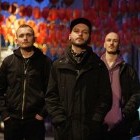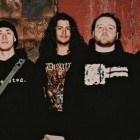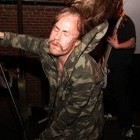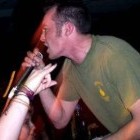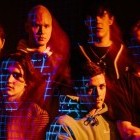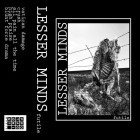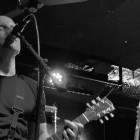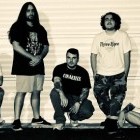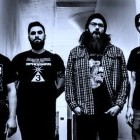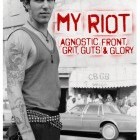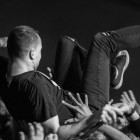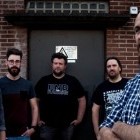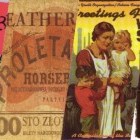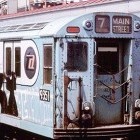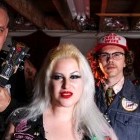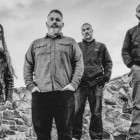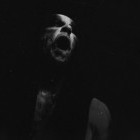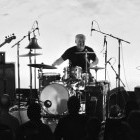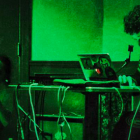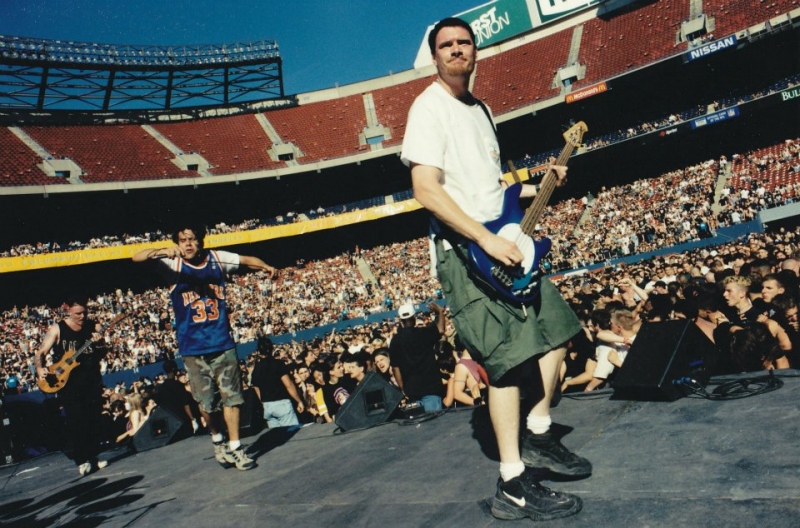
Back in the early '90s, downset. merged the sound of metallic hardcore with the lyrical attack and flow of hip-hop. Blazing out of the Los Angeles music scene, the band signed with Mercury Records, releasing their eponymous debut album in 1994. The record included "Anger," an incendiary song that connected with a generation of disenfranchised music fans. downset. went on to release one more studio album on Mercury in the form of 1996's Do We Speak a Dead Language? in 1996, before heading to Epitaph Records for 2000's Check Your People full-length.
downset. bassist James Morris parted ways with the band after Check Your People, and pursued a career in the television world, reuniting with his former band for some shows in 2012 and 2014. These days, James is a member of NonCon, a punk band that came together in 1984, and reformed in 2014. Earlier this year, Irish Voodoo Records dropped NonCon's self-titled album which I called "a fun collection of skateboard-ready punk rock that delivers plenty of memorable hooks" on the site.
Earlier this month, I met with James at Mel's Diner in Sherman Oaks, CA for lunch and we had an extensive conversation about his time in downset., growing up in Los Angeles, and his life today. Hopefully you enjoy getting to know him as much as I did.
Tell me a bit about your upbringing.
I grew up in North Hollywood, in an area that was like—you know—block to block. I grew up in a house on a good block, but you would walk a couple of blocks away and it was like one of the worst neighborhoods in all of the [San Fernando] Valley. I grew up skateboarding, so I had a target on my back [laughs].
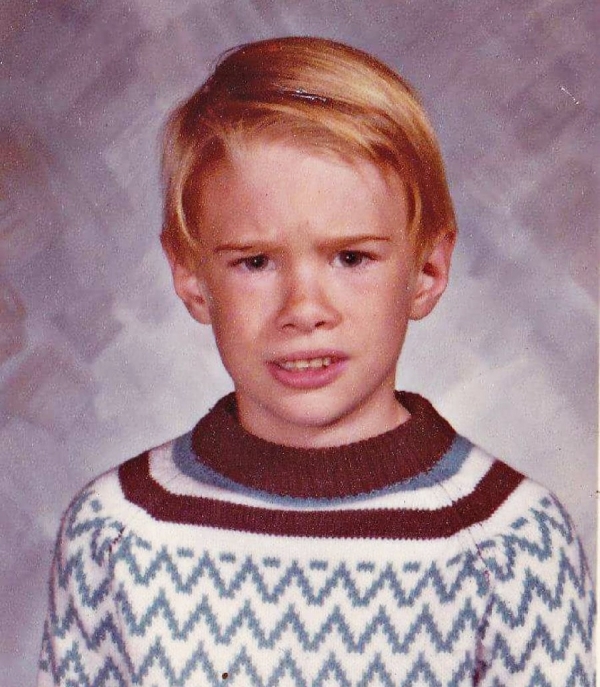
What kind of music did you gravitate towards as a kid in the early ‘80s?
With my parents, there wasn't a lot of importance put on music or culture. My parents never bought a record, never went to a show. So at around the age of eight, I would start looking at people at my school that liked music and seeing what they were into. It was fascinating to me that anyone could be defined by music of any kind at that point. I didn’t get it.
Now, the happenstance of music videos and me being a latchkey kid really did a number. All a sudden there was a TV show called Video One with Richard Blade around 1983. I would come home from school and put this show on and I’m seeing all of the early videos. Something happened when Quiet Riot’s “Metal Health” video came on. The visuals were from like a scary movie, and I loved it. All of those early metal bands scared me and thrilled me all at the same time. You know, Ratt, Mötley Crüe… the early ‘80s stuff. All of a sudden there was something that was mine.
At what point did you start going to shows? Being that you’re from this area, I would think the Country Club in Reseda was an important place for you.
I lived at the Country Club. That place was my CBGB. Every weekend I was there. No For An Answer, Flower Leperds, and D.I. was my first show there. That’s when D.I. was my favorite band at the time because I skated. This was like 1988 or 1989. It was great!
When did you start playing in bands?
I became a fan of a band called Social Justice. They had put out a 12” in 1989 called Unity Is Strength. That became my all-time favorite record because these guys were from Sylmar, which was in the Valley, which meant that they were part of my scene. I was so enamored with the idea of having something that was mine, this scene, especially at the Country Club. So, yeah, Social Justice became the be all end all for me.
Anyway, a friend of mine ran into the band’s singer, Rey [Oropeza], and he’s like, “the band broke up, but I want to keep it going.” He then asks my friend if he knew any bass players. So, I get this call from my friend, Trevor, who says, “Rey is going to come to your house to see you play bass.” It was crazy [laughs].
Wow! Talk about awkward!
Yeah, so Rey takes the bus to my house and sits in my room and goes, “show me what you can do.” This was in the beginning of 1990. I started playing Misfits and Youth of Today songs, all badly [laughs]. After a while, he’s like, “you’re in the band.” All of a sudden, at the age of 15 or 16, I was in my favorite band. I could have died and gone to heaven.
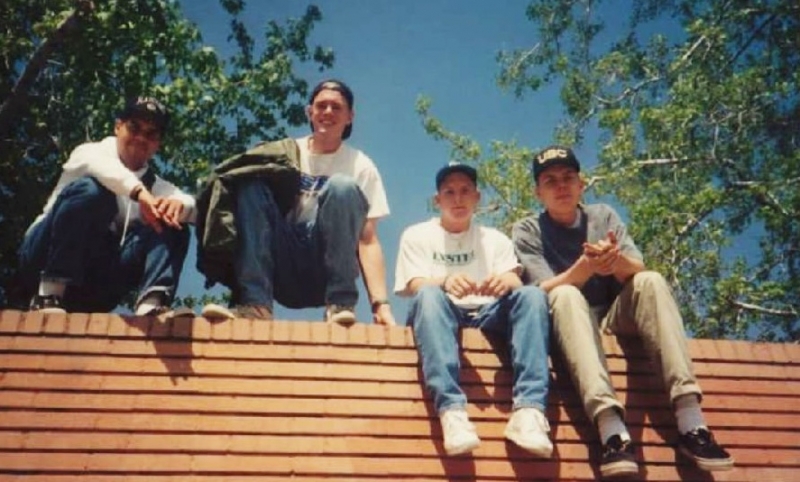
What was the first show you played as a member?
The first official show was at our rehearsal space in Sylmar with a band called Bottom Line, and another one called No Reason. The first club show was at this place called the Anti-Club and that was with Face to Face, Guttermouth, and H.F.L.
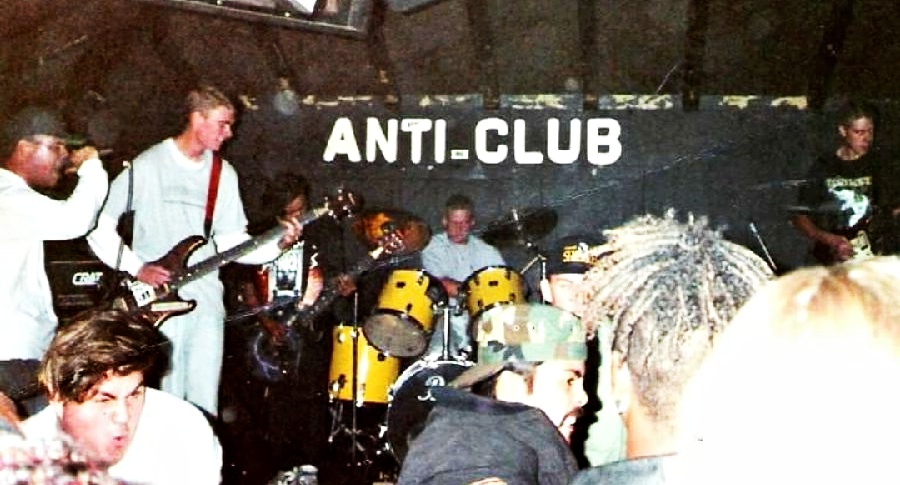
I’ve heard of that club, but it was gone before I moved out to LA.
Yeah, it was in a super-seedy area of Hollywood, before it got gentrified. [The Mentors leader] El Duce held a knife to my throat there one night. He didn’t like my mohawk and didn’t think I had earned it [laughs].
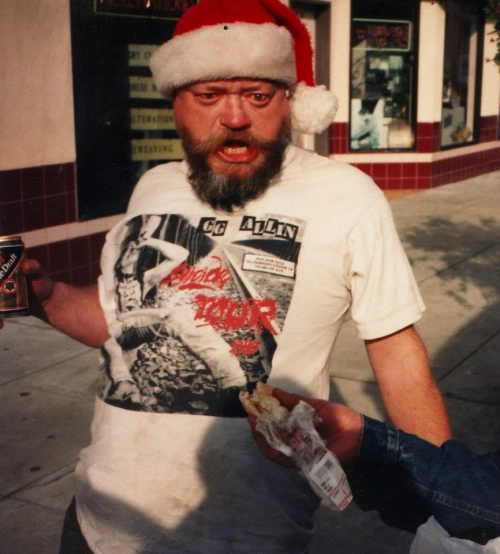
How did it progress from Social Justice into downset.?
We solidified the band’s lineup and played a lot of shows, clubs, backyard parties, anywhere. All of a sudden, things started to sound a bit more hip-hop. Rey was doing more rapping kind of stuff. Then we became downset. in 1993.
So the name change coincided with the sound shift.
Yeah, at that time, there was a really big rule in our scene that you didn’t sell out. Don’t try and do something bigger than hardcore, that kind of thing. But the music changed enough to warrant a name change. There was also immediate interest from managers and labels once we started changing the sound. I can’t say that I had an vision about it, I just went with it.
SEE ALSO: Meet Some of the Most Dedicated Record Collectors in the World of Hardcore
Who was steering the ship?
Rey was mainly steering the ship, and Roy Lozano, the guitarist.
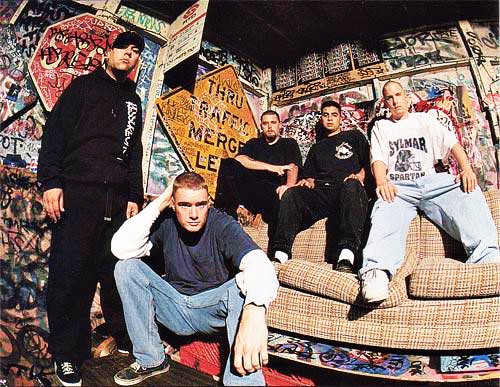
So downset. begins to get traction with managers and labels…
Yeah, and we made a demo. That happened really fast. The credit goes to the producer, Roy Z. (Bruce Dickinson, Sepultura). We would go 7/10th of the way with a song or an idea, he could think of something dynamic and make it better. The demo went out to labels and there was a feeding frenzy. There were people who thought that the mix of hip-hop with heavy music was the next big thing. We were sold as something like Black Flag with Ice Cube in the mix, or something. That’s what A&Rs were saying.
Who were some of the labels that approached you about signing?
Columbia Records was one of them. The only independent label that approached us was Theologian Records, who we actually did a split with Pennywise on.
How did the deal with Mercury Records come about?
Alec Peters was the A&R there who signed us. He was an O.G. Boston hardcore guy. He knew everyone in the hardcore scene there. I think he was Gang Green’s tour manager at some point. As an A&R, I know he signed the Mighty Mighty Bosstones and Circle Jerks. He had a lot of success with the Bosstones. Mercury, at that time, was trying to get away from the Bon Jovis and stuff like that. The label was learning what do with a band like us as we went.
It must have been such a trip to be signed to that massive label.
It was crazy. I quit my job at this place Miller’s Outpost after I got my record advance. I was able to buy new equipment and still had money in the bank. It was amazing. All I had to do was write music. We were writing all of the time. It was never stressful or hard. At least from my point of view, it wasn’t. We even got to tour Europe before the album even came out.
Was that the first ever downset. tour?
Yeah, we toured Europe with Biohazard and Dog Eat Dog. We were in a bus, playing for 5,000 people a night. We’re talking early 1994. Biohazard was touring on Urban Discipline, so they were huge. That’s where I learned how to play “bigger,” if you know what I mean. I couldn’t just shoegaze anymore.

Did ego start coming into play once downset. started doing big stuff like that?
I think there was always ego stuff happening. downset. was always fraught by egos. A lot of times that’s why things didn’t work out. We would get in each other’s way. There’s this white-hot focus on the stuff you don’t like about someone when you’re up each other’s asses for weeks and months at a time on tour.
In terms of downset. and its legacy, “Anger” will always be the song that everyone associates with the band. That opening where Rey calmly speaks "anger, hostility towards the opposition" is such a powerful introduction to the band. It's one of those signature musical moments that get stuck in your head forever.
There was no doubt from the sound of the song, to what the lyrics pointed to, and the culture of the time, that we had something special. It was the perfect time for that song to come out.
What did your parents think of the band signing to a record label and going out on tour?
My dad never understood or liked the music, obviously. Once he saw that I could quit my job and make a living, he stopped asking me stupid questions like, “Oh, so you’re a punker?” [Laughs] I loved my father, but, you know. He came to one show, and that was when we played with 311 and Mighty Mighty Bosstones, two days before the big Northridge earthquake. He wore a Notre Dame Fighting Irish jacket and he ended up talking with Dicky [Barrett] from the Bosstones like they were father and son [laughs]. My mom was always 100% supportive. If I needed $10, she would give it to me. She drove me anywhere where I needed. Stuff like that.
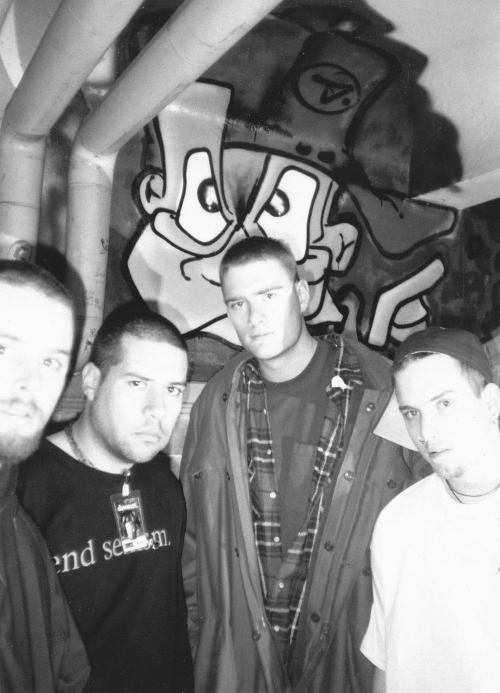
Let’s move on to the second downset. album, 1996’s Do We Speak a Dead Language?
We worked with Roy Z again on that one. There was a lot of exploring our sound and Roy pushing us to be more introspective. The second album is a lot less tough than the first one. It’s wiser in the fact that it takes responsibility for itself. Rey, as a writer, got a lot more aware of the picture that he was painting. We could say things that lift us up, rather than destroy. I think that comes through on the record, lyrically.
Musically, I was always trying to figure out what I could do on the bass that was different. I found my stride as a bass player, as a rhythm section, and paid attention to what the drummer was doing more. I step out in front a lot more compared to the first record.
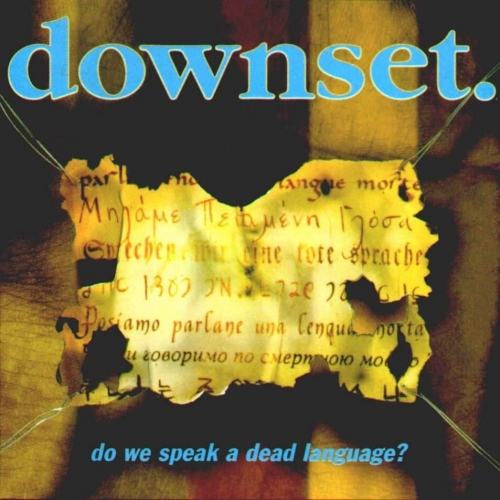
What songs from the second downset. album stand out to you today?
I like the song “Touch” a lot. “Eyes Shut Tight” has a great groove to it. “Sangre De Mis Manos” was in Spanish and became a powerhouse for us.
What were some of the tours that you did on that second album?
We did Ozzfest in 1997. That was one constant mind-blowing experience after the other. It was us and Marilyn Manson, Pantera, Machine Head, V.O.D., Slo-Burn, Fear Factory, Type O Negative, and Black Sabbath. It was heavy metal summer camp for me. I was hanging out in stadiums with my heroes. One of my favorite parts was becoming friendly with Sharon Osbourne. We automatically got along well. I would watch Jack and Kelly Osbourne, and they were little kids at that point, but she trusted me that much. I got to do a lot of stuff the other musicians weren’t allowed to do, like hang out backstage with Sabbath and talk about STAR WARS with Geezer Butler and Tony Iommi [laughs]. It was just a lot of fun, and it was easy. We headlined the second stage.
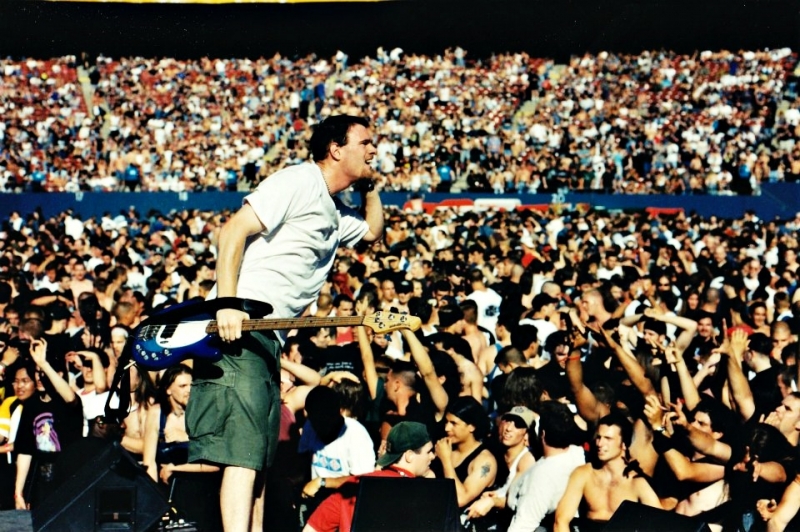
The third downset. album, Check Your People, arrives a few years later on a new label: Epitaph Records. What happened with Mercury Records?
What happened was there was a consolidation of the labels under the Seagrams deal with Universal. We had recorded the third album with Roy Z. at Sound City, but Mercury wasn’t sure how downset. was going to shake out after the Seagrams stuff. So, because we still required a lot of work to push, the label wasn’t sure what to do with us. The album got shelved after that. That happened for a year. I had taken a job managing a record store in Burbank, which was a lot of fun. But we were waiting to see what happened with the album.
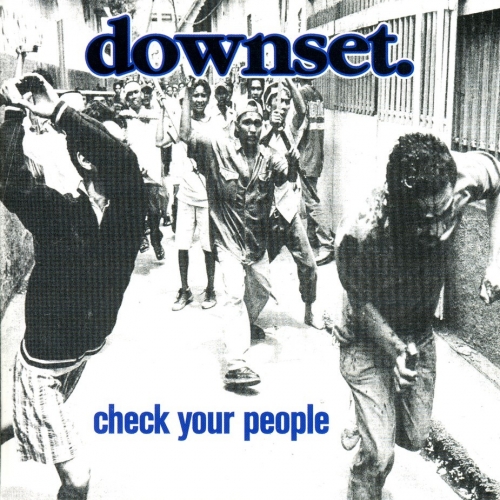
How did Epitaph get involved?
Mercury decided to let the album go for what they spent on making it. Epitaph paid for that and signed us to the label. My friend, Mike Dunne, who worked at Epitaph, played Brett Gurewitz the album and he loved it and wanted to talk with us. After we signed, we went back out on the road. It took a year for the album to come out from when we recorded it.
How did working with Epitaph go?
I think Epitaph had a lot smaller engine to devote the kind of resources and stoke the flames to get downset. over. Also, by that point, the doors started to close on the genre. Things started to slow down. The shine was off the apple as far as it being the next big thing.
Why did you part ways with downset.?
Things had quieted down for the band, and we were at each other’s throats. I saw the writing on the wall. Things were getting smaller for the band. We weren’t getting any better to each other as people. I remember being in the tour bus and the company we rented from wouldn't give us our gear until we paid back what we owed them. We ended up basically jacking our shit back. I told them that as soon as the bus leaves me in front of my house, that I was quitting the band. So, yeah, I left the band and went back to school.
SEE ALSO: 2017 interview with Andrew Kline (Strife, World Be Free).
What did you study?
I wanted to study something were I could be behind-the-scenes and still work on cool shit. So I got into television production at Valley College. I got an internship at KABC here in LA and that turned into a job as a broadcast engineer. I’ve been there ever since.
downset. eventually got back together and made an album without you. Was that tough for you to see?
No, not at all. I had completely found a point in my life where I had enough of something. The genre was dying and I didn't see it coming back.
When you say "genre," what exactly was downset.?
You know, rap-metal, or whatever. I hate that term. It makes me cringe. Nu-metal or whatever.
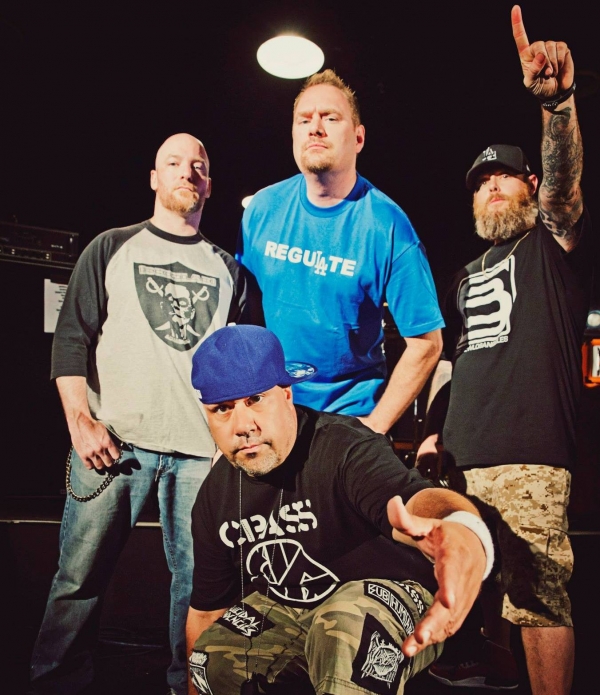
Yeah, that's brutal, in a bad way!
Exactly, but back to the band...my brother died and we played a fundraiser for his headstone at the Key Club in 2002. We also did three shows on the West Coast and four on the East Coast about three years ago. It was kind of friendly terms, but I never wanted to come back to the band.
When did you decide that you wanted to play in a band again?
I did something with Dan Clements from Excel called Supervillain. It was a heavy alternative thing but it didn’t work. We made a demo and played shows. I ended up dropping that and concentrated on my job and bought a house. I also went back to school while I was working at KABC and met a guy named Mikhail. Anyway, we started talking about punk rock and he tells me about how is band NonCon used to play in the Valley in the ‘80s.
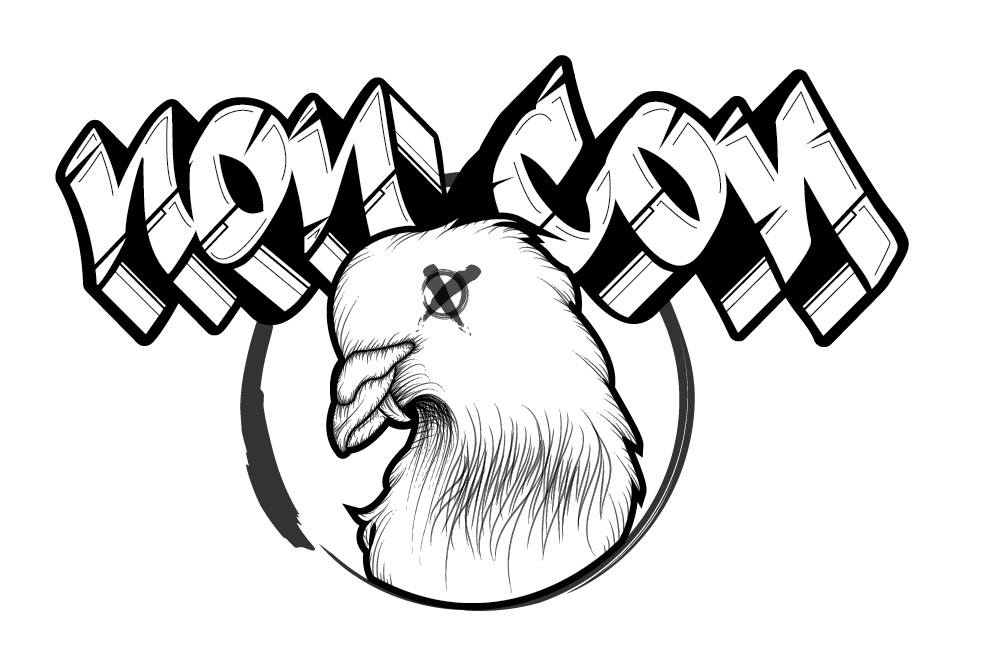
So he got the ball rolling for you.
The idea was to go open up the garage and put a battery in the rusty old car and start it. The theory was to make 1985-sounding hardcore punk rock. We found members that were like-minded, and there were guys that I’ve known since the late ‘80s. Through downset., you knew everyone from the community. Joey was the singer and he had been in a band called Bloodcum back in the day.
It must feel good to get back to those roots.
I am blessed and proud to play now. It’s a band that the 14-year-old me would have gone to see in a backyard and have my face melted. One of my purest joys in life was seeing bands playing shows in backyards when I was a kid and this feels like that again. It felt great to know that I got this, and that I belonged. It was like recalling an old scent. The idea has never been for NonCon to pay the bills, or to be something that is leaned on. It's something we want to nurture, and not for it to nurture us.
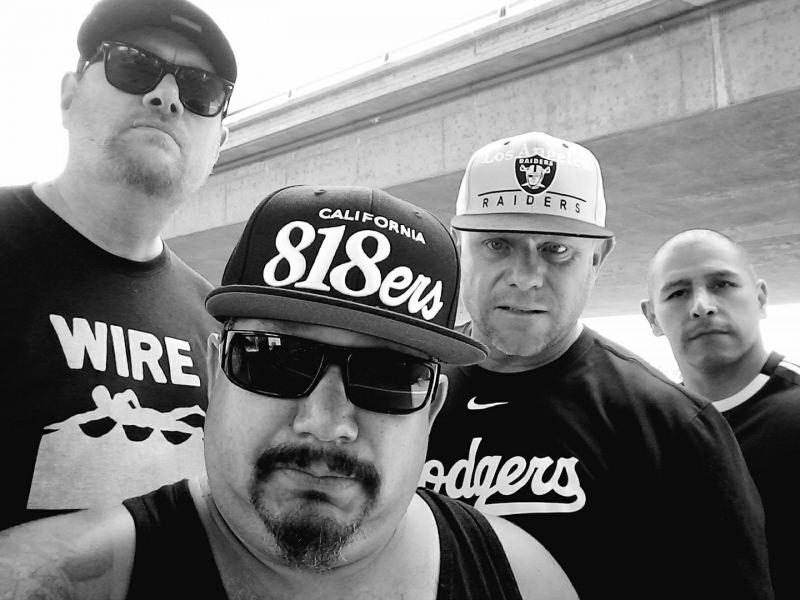
The NonCon record came out through Irish Voodoo Records, a label who has also released stuff from bands like Done Dying, Longest War, and The Last Stand. How did you hook up with the label?
There was this whole thing where he wanted to put out some that downset. was going to do, but it really wasn't downset., so he was asked not to put it out. Anyway, he talked to me and said that if I ever do anything again, to let him know. So I told him about NonCon and he [Joey Voodoo] listened to it and loved it.
Well, now that we've caught up to the present, I wanted to close out with a fun question. If you had to pick one band from your formative years that had a big impact on you, but they never managed to break through on a bigger scale, who would that be?
Positive Approach was a Chicano straight edge band from the ghettos of Pacoima and Sylmar that I loved. Bottom Line was another band downset. used to play with a lot. No Reason was a great band from the Sylmar area. Public Nuisance is a great band that has been going since the '80s. NonCon plays with them now.
***
Follow NonCon on Facebook and Instagram. You can pick up the CD version of NonCon from RevHQ, and if you prefer digital, you can grab that on Bandcamp.

